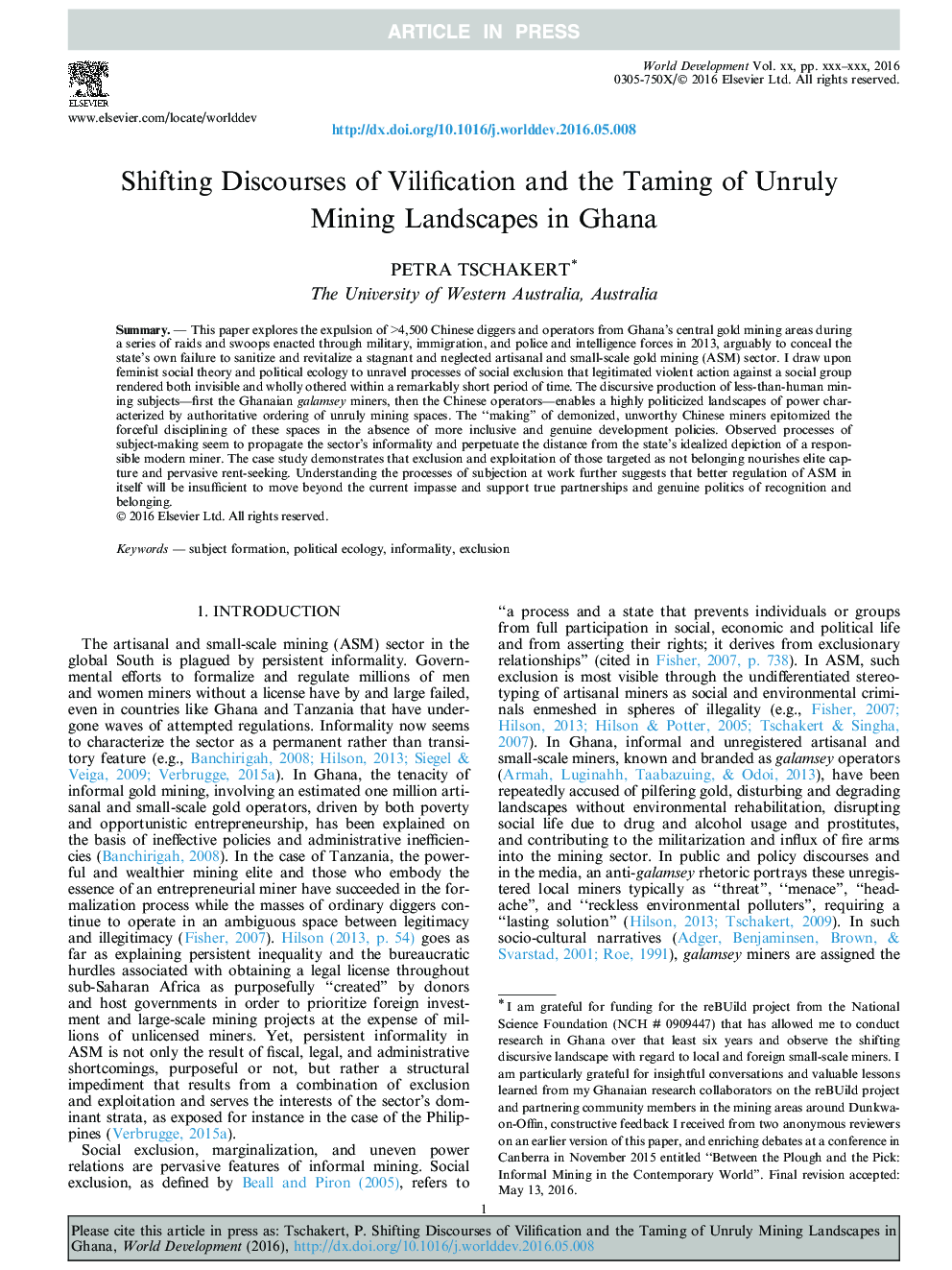| Article ID | Journal | Published Year | Pages | File Type |
|---|---|---|---|---|
| 7392490 | World Development | 2016 | 10 Pages |
Abstract
This paper explores the expulsion of >4,500 Chinese diggers and operators from Ghana's central gold mining areas during a series of raids and swoops enacted through military, immigration, and police and intelligence forces in 2013, arguably to conceal the state's own failure to sanitize and revitalize a stagnant and neglected artisanal and small-scale gold mining (ASM) sector. I draw upon feminist social theory and political ecology to unravel processes of social exclusion that legitimated violent action against a social group rendered both invisible and wholly othered within a remarkably short period of time. The discursive production of less-than-human mining subjects-first the Ghanaian galamsey miners, then the Chinese operators-enables a highly politicized landscapes of power characterized by authoritative ordering of unruly mining spaces. The “making” of demonized, unworthy Chinese miners epitomized the forceful disciplining of these spaces in the absence of more inclusive and genuine development policies. Observed processes of subject-making seem to propagate the sector's informality and perpetuate the distance from the state's idealized depiction of a responsible modern miner. The case study demonstrates that exclusion and exploitation of those targeted as not belonging nourishes elite capture and pervasive rent-seeking. Understanding the processes of subjection at work further suggests that better regulation of ASM in itself will be insufficient to move beyond the current impasse and support true partnerships and genuine politics of recognition and belonging.
Related Topics
Social Sciences and Humanities
Economics, Econometrics and Finance
Economics and Econometrics
Authors
Petra Tschakert,
